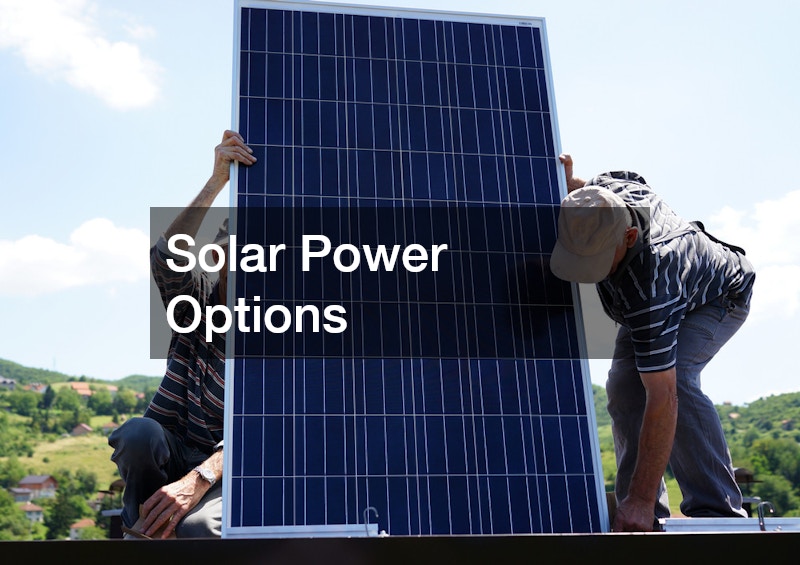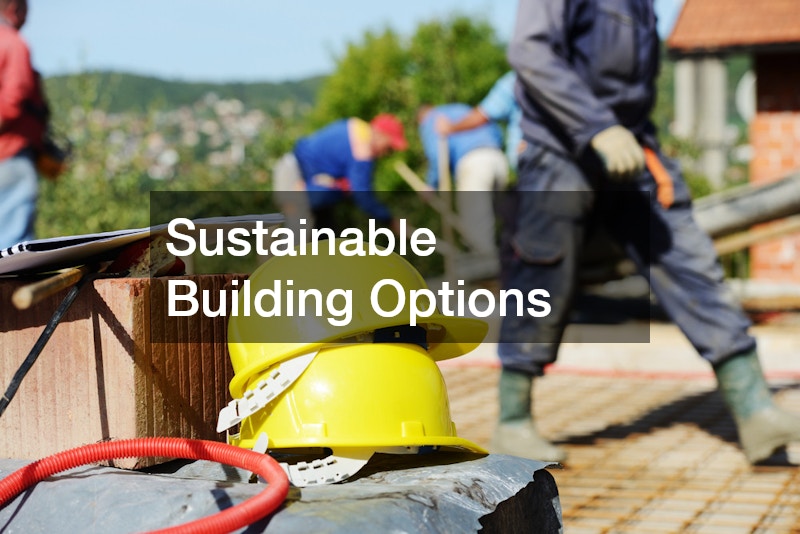Spring is the perfect season for renewal—not just in nature, but within our homes too. As we shake off the winter chill, many of us turn our attention to home improvements that can enhance our living space and promote sustainability. With the increasing importance of eco-friendly solutions that cater to both comfort and environmental responsibility, this season provides a great opportunity to embrace upgrades that will reduce your carbon footprint while enhancing your home’s efficiency. In this article, we will explore 10 eco-friendly solutions that you can implement this spring, ensuring a healthier living environment for you and your family.
Incorporating eco-friendly solutions doesn’t have to be overwhelming. Whether you’re seeking to make small adjustments or consider major renovations, there are alternatives that align beautifully with nature. Let’s dive into these transformative options designed to upgrade your home sustainably.

1. Solar Power Options
One of the most effective eco-friendly solutions for your home is solar panel installation. Harnessing the power of the sun allows homeowners to significantly reduce their reliance on nonrenewable energy sources. As energy costs continue to rise, the long-term savings from solar panels can be substantial, making this solution a smart financial decision as well.
When considering solar panel installation, it is important to work with a reputable solar company. Professional installation not only ensures that the panels are positioned correctly for maximum sun exposure but also that they function efficiently. Furthermore, many solar companies offer maintenance plans that guarantee the longevity of your solar system.
After the initial installation, the benefits continue beyond energy savings. Many homeowners report an increase in home value, not to mention the positive environmental impact by reducing their carbon footprint. With the understanding that eco-friendly solutions can also elevate property value, solar panel installation is a win-win option for homeowners this spring.
2. Energy-Efficient Water Heaters
Replacing your old water heater with an energy-efficient model is another excellent eco-friendly solution. Traditional water heaters consume more energy due to their continuous heating methods, leading to higher utility bills. In contrast, energy-efficient water heaters utilize advanced technology to minimize energy consumption while still providing ample hot water for your household needs.
When selecting a new water heater, consider options like tankless models or solar water heaters. Working with a qualified plumber can help you find the best solution that meets your hot water demands. These modern systems not only save energy but also have a smaller carbon footprint and longer lifespan than their traditional counterparts.
Beyond saving money, upgrading your water heater is a proactive move that enhances your home’s overall efficiency. Homes with modern plumbing and energy-efficient appliances are increasingly sought after in the market. In essence, an upgraded water heater aligns with the trend of eco-friendly solutions while improving the comfort of your home.

3. Electric Vehicle Charging Stations
As electric vehicles become more mainstream, investing in home EV charging station installation is a forward-thinking eco-friendly solution. Having a personal charging station allows you to charge your vehicle efficiently right from the comfort of your home. Not only does this convenience promote the use of clean energy, but it’s also cost-effective compared to relying on public charging stations.
Collaborating with certified EV charging station installers ensures that the setup complies with all local regulations and industry standards. It’s crucial to select installers with experience who can advise on the best location and equipment that suits your electric vehicle’s needs. Making this addition to your home showcases a commitment to sustainable living while adding convenience to your daily routine.
Furthermore, many local and federal incentives may be available to assist in the installation costs for EV charging stations. Researching these incentives can help you save money while making a substantial energy-efficient upgrade to your home. Thus, installing an EV charging station not only emphasizes your commitment to eco-friendly solutions but can also be financially wise in the long run.
4. Water-Efficient Lawncare
Upgrading your garden and lawn with a water-efficient sprinkler system installation can dramatically reduce your water consumption—an essential eco-friendly solution. Traditional irrigation systems often waste water through excessive runoff and evaporation. Modern systems, however, utilize smart technology and efficient designs that deliver precise amounts of water where and when it’s needed.
Working with experienced landscaping contractors can ensure that your new sprinkler system is customized to your landscape’s unique needs. They can recommend appropriate placement and types of sprinklers to minimize water waste and maximize effectiveness. By incorporating a water-efficient sprinkler system, you help conserve a precious resource while creating a thriving garden.
In addition to the environmental benefits, a well-maintained garden enhances curb appeal and increases property value. Beautiful backyard landscaping not only serves an aesthetic purpose but can also contribute to urban biodiversity. Therefore, investing in water-efficient landscaping solutions supports eco-friendly initiatives while transforming your home’s exterior.

5. Sustainable Building Options
Incorporating sustainable building materials is one of the foundational eco-friendly solutions for any home improvement project. From using reclaimed wood to energy-efficient insulation, these materials minimize environmental impact while ensuring durability and better energy efficiency. By choosing eco-friendly products, you help reduce waste and support sustainable forestry practices.
Consulting with contractors who prioritize sustainable materials during your renovation can lead to informed choices. Products such as recycled metal roofing, low-VOC paints, and bamboo flooring are excellent examples of eco-friendly options. Selecting these materials not only benefits the planet but can create a more breathable and healthier living environment for your family.
Moreover, many sustainable materials offer long-term savings through their durability and efficiency. Choosing eco-friendly options during renovations like these promotes a lifestyle committed to sustainability while increasing the value of your home. Therefore, embracing sustainable building materials is a crucial step towards a greener future.
6. Energy-Efficient Appliances
Swapping out older appliances for energy-efficient models is an impactful eco-friendly solution. Appliances with the ENERGY STAR label consume less energy than their conventional counterparts, leading to significant savings on utility bills. From refrigerators to dishwashers, upgrading these devices not only improves performance but reduces environmental impact.
When planning to upgrade your appliances, it’s worthwhile to consult with an electrician to ensure your home’s electrical system can support new devices. Some energy-efficient appliances may require specific outlets or circuits, and a professional electrician can help you navigate these requirements. This step ensures that your upgrades provide maximum efficiency and safety.
Investment in energy-efficient appliances is an investment in a more sustainable future. As you reduce your household energy consumption, you are positively impacting the environment by minimizing carbon emissions associated with energy production. This translates to a dual benefit: modern conveniences and improved environmental responsibility through eco-friendly solutions.

7. Smart Home Technology
Integrating smart home technology is an innovative eco-friendly solution that can streamline energy use. From smart thermostats to automated lights, these systems help track and manage energy consumption effectively. With adjustments made according to your lifestyle, you can significantly reduce overall energy waste.
For instance, smart thermostats learn your heating and cooling preferences, adjusting temperatures when you’re away to save energy. This technology empowers homeowners to maximize efficiency while ensuring comfort without constant manual intervention. Partnering with tech-savvy electricians can ensure that your system is set up for optimal functioning and integration with other home devices.
Additionally, many smart gadgets can be accessed remotely, allowing you to monitor your energy usage from anywhere. This visibility promotes accountability in energy consumption and encourages more sustainable habits. Therefore, the implementation of smart home technologies positions your home well within the realm of eco-friendly options.
8. Sustainable Landscaping Practices
Beyond just aesthetic improvements, adopting sustainable landscaping practices serves as a core eco-friendly solution. By selecting native plants, you can ensure that your garden thrives with minimal resource use, as these plants are naturally adapted to your region’s climate. Furthermore, incorporating xeriscaping techniques can reduce water consumption without sacrificing beauty.
Landscape professionals, such as landscaping contractors, are equipped with the knowledge to create environments that require less upkeep and natural resource expenditure. They often have access to resources for the promotion of local biodiversity, which contributes to a healthier ecosystem. Investing in sustainable landscaping not only enhances the beauty of your home but also engages you in environmental stewardship.
Engaging in practices like composting and organic fertilization can also significantly reduce your environmental impact. By recycling yard waste and avoiding chemical fertilizers, you contribute to soil health and the surrounding environment. Ultimately, sustainable landscaping represents a harmonious blend of nature and architecture, affirming its position as an essential eco-friendly solution.
9. Green Roofs and Living Walls
Installing green roofs or vertical gardens, or living walls, are avant-garde eco-friendly solutions that are gaining popularity this spring. These structures not only enhance the beauty of your home but also improve air quality while providing insulation benefits. By creating a green space in urban environments, they mitigate heat absorption and promote biodiversity.
Implementing a green roof requires specialized knowledge; enlisting the help of trained professionals is essential for proper installation. They can help select suitable plant species and ensure that the structural integrity of your home is maintained throughout the installation. This investment increases energy efficiency and serves as a stunning focal point for your home.
The aesthetic benefits of green roofs and living walls also correlate with increased property value and marketability. As more buyers seek eco-friendly solutions, investing in a green roof may pay dividends when you’re ready to sell. This modern addition represents a commitment not only to personal environmental efforts but also to innovative home design.
10. Homestead Living Options
For those looking to embrace sustainable living on a personal level, adding an Amish chicken coop is an inspiring eco-friendly solution. Raising your own chickens not only provides a source of fresh eggs but also encourages responsible land use and pest control within your garden. These coops are designed with sustainability and functionality, often using high-quality, locally sourced materials.
Building an Amish chicken coop can be a rewarding project, providing an opportunity to engage with nature and learn about animal husbandry. You can personalize the coop to fit your available space, ensuring you have adequate shelter for your chickens while also complementing your backyard landscaping. Additionally, chickens can provide natural fertilizer for your garden, embodying the essence of circular sustainability.
As interest in local food production continues to rise, having a chicken coop can align with the growing trend of self-sufficiency. It encourages families to consider their food sources and promotes a deeper connection with nature. Thus, establishing an Amish chicken coop not only enhances your spring projects but also contributes to the broader eco-friendly solutions that benefit both individual households and the environment.
11. Rainwater Harvesting Systems Water
Water conservation is a vital aspect of eco-friendly living, and installing a rainwater harvesting system is a practical solution to reduce water waste. These systems collect and store rainwater, which can then be used for irrigation, flushing toilets, and even laundry, depending on the filtration setup. By utilizing naturally available water, homeowners can decrease their reliance on municipal water sources, leading to both environmental and financial benefits.
The installation process for a rainwater harvesting system varies in complexity, from simple rain barrels placed under downspouts to advanced underground storage tanks with filtration capabilities. Consulting with professionals who specialize in water conservation solutions can ensure an efficient setup that meets your household’s needs. Many local governments also offer incentives for homeowners who invest in water-saving initiatives, making this an affordable and sustainable option.
In addition to reducing water bills, rainwater harvesting contributes to the overall health of the environment by reducing stormwater runoff. Excess runoff can lead to soil erosion and pollution in nearby water bodies. By capturing rainwater and repurposing it, you actively participate in maintaining a balanced ecosystem while enjoying a more self-sufficient water supply.
12. Composting and Waste Reduction
Another impactful eco-friendly solution for upgrading your home this spring is adopting composting and waste reduction practices. Composting allows homeowners to repurpose organic waste, such as food scraps and yard debris, into nutrient-rich soil for gardening. This not only diverts waste from landfills but also enhances soil quality, reducing the need for chemical fertilizers that can harm the environment.
Starting a composting system is easier than many people think. Whether you choose a traditional backyard compost bin, a worm composting system (vermicomposting), or a kitchen composting unit, there are options for every living situation. Researching the best composting method for your home ensures success and encourages consistent waste reduction. Additionally, many municipalities offer composting programs that provide bins and resources to support homeowners in their sustainability efforts.
Beyond composting, reducing overall household waste through mindful consumption and recycling is crucial. Opting for reusable products, purchasing items with minimal packaging, and properly sorting recyclables can significantly lower your environmental footprint. By making waste reduction a priority, you create a cleaner, more sustainable home environment while positively impacting the planet for future generations.
As spring heralds a season of renewal and growth, it offers the perfect opportunity for homeowners to embrace eco-friendly solutions that enhance not only the aesthetic but also the functionality and sustainability of their living spaces. From solar panel installations that harness renewable energy to water-efficient sprinkler systems that conserve water, every upgrade contributes to a more sustainable future. With the growing urgency to address climate change, each step you take toward eco-friendly living not only benefits you but can also inspire your community to follow suit.
Implementing changes such as energy-efficient appliances, smart home technologies, and sustainable landscaping practices demonstrates a commitment to protecting our planet and preserving resources for future generations. Collaborating with trained professionals—be it electricians, plumbers, landscaping contractors, or EV charging station installers—ensures that you will achieve the best possible outcomes for your upgrades. Moreover, sustainable options like an Amish chicken coop reaffirm our connection with nature, encouraging self-sufficiency while minimizing our overall environmental impact.
The journey toward a more eco-conscious home can be both enriching and invigorating during this vibrant season of spring. It is absolutely crucial to recognize that with every eco-friendly solution you implement, you create a ripple effect, inspiring others to consider the environmental impact of their daily choices. Embracing these solutions is not merely a trend, but a lifestyle shift toward a more sustainable, hopeful future for all.
